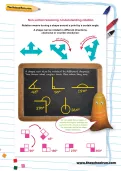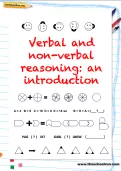Important update from TheSchoolRun
For the past 13 years, TheSchoolRun has been run by a small team of mums working from home, dedicated to providing quality educational resources to primary school parents. Unfortunately, rising supplier costs and falling revenue have made it impossible for us to continue operating, and we’ve had to make the difficult decision to close. The good news: We’ve arranged for another educational provider to take over many of our resources. These will be hosted on a new portal, where the content will be updated and expanded to support your child’s learning.
What this means for subscribers:
- Your subscription is still active, and for now, you can keep using the website as normal — just log in with your usual details to access all our articles and resources*.
- In a few months, all resources will move to the new portal. You’ll continue to have access there until your subscription ends. We’ll send you full details nearer the time.
- As a thank you for your support, we’ll also be sending you 16 primary school eBooks (worth £108.84) to download and keep.
A few changes to be aware of:
- The Learning Journey weekly email has ended, but your child’s plan will still be updated on your dashboard each Monday. Just log in to see the recommended worksheets.
- The 11+ weekly emails have now ended. We sent you all the remaining emails in the series at the end of March — please check your inbox (and spam folder) if you haven’t seen them. You can also follow the full programme here: 11+ Learning Journey.
If you have any questions, please contact us at enquiries@theschoolrun.com. Thank you for being part of our journey it’s been a privilege to support your family’s learning.
*If you need to reset your password, it will still work as usual. Please check your spam folder if the reset email doesn’t appear in your inbox.
How to handle the 11+ test day

After months of preparation and what feels like hundreds of practice papers, your child’s 11+ journey is about to reach its climax. But no matter how well prepared your child is, their performance on the day itself is ultimately all that counts – and nerves, rushing and silly mistakes can all mean the difference between passing and failing.


Prepare Your Child For The 11+ Exam
- Essential 11+ English and maths skills
- Verbal and non-verbal reasoning questions
- Reading comprehension worksheets & CLOZE tests
We asked tutor Madeleine Kasson for her top tips for tackling the 11+, in the run-up to the exam and on the day itself.
The night before the test
Relax and get confident. Remind yourself that tomorrow isn't the end of the world: it's an exciting opportunity!
Lay out your clothes, and double check if you're supposed to wear your school uniform or not.
Get a good night's sleep. Don't have too much sugar right before bed, and switch off your screens nice and early so your brain can wind down. Try reading a good book to send you off to sleep.
The morning of the test
Wake up nice and early to give yourself time for your brain to turn on and get up to full speed.
Have a healthy breakfast. Try to eat something that will release energy slowly through the day, like nuts, oats, protein or dried fruit. You could have porridge with raisins and dried apricots, or a poached egg on toast.
Have a relaxed conversation with your parents or brothers and sisters. Do a little bit of maths and fun creative English to get your brain going: you could make up a simile about your breakfast, and some alliterative phrases about the day to come,
Make sure you have everything you need, including sharp pencils, rubbers and anything else you’ve been told to bring. If there’s going to be a break between papers, remember to take a drink and a snack.
In the exam room
Before you open the test, pause and remind yourself, ‘I can pass this test!’ Take some deep breaths to put yourself mentally in control, wait for the rustling of everyone else's tests to pass, then get going.
Write any equations or tips you've remembered at the top of the page on your exam paper, so you don't have to hold them in your head.
Breathe, slow down and don't rush. Your goal is to get all the questions that you can right – not to finish the test.
Don't waste time on difficult questions. If you can't work out what the question is asking or what the answer might be quickly, move on.
Don’t answer the questions in order. Look for the ones that you’re confident with and do those ones first.
When it comes to the verbal and non-verbal reasoning test, don't worry if you don't finish. The examiners have given you more problems than you can possibly do in the time given just to be sure you don't run out.
Above all, have fun. Feel good when you know what you're doing, and be excited about facing new puzzles and challenges.
Madeleine Kasson is a tutor with Tutorfair, which connects children and parents with private tutors for every subject and level throughout the country. Tutorfair also sends tutors into London's most disadvantaged primary and secondary schools, pledging that for every student who pays they will give tuition to a child who can't.







